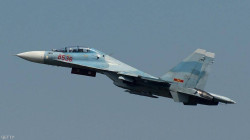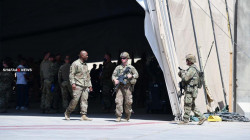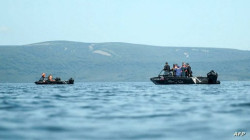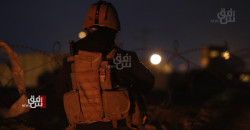Forbes: Iraq is facing difficulties sustaining its Russian military helicopters
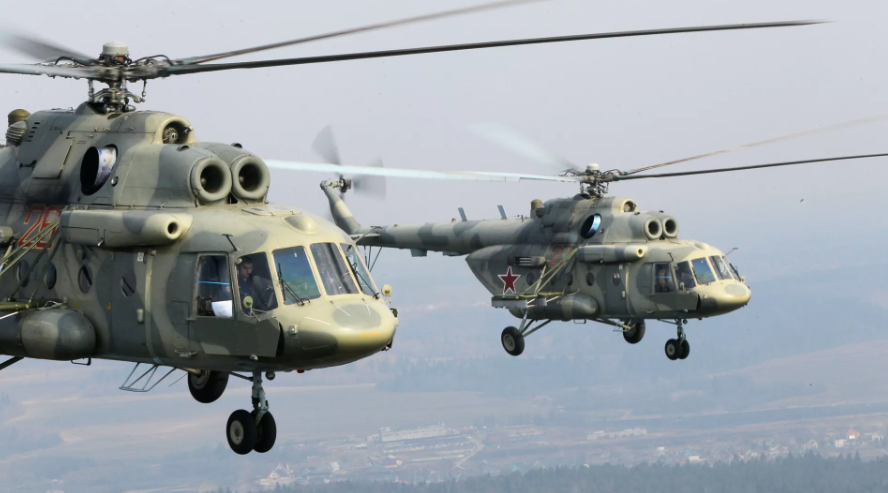
Shafaq News/ Forbes reported that Iraq's military is facing significant difficulties sustaining its fleet of Russian-made military helicopters as an indirect result of Russia's invasion of Ukraine.
The latest quarterly report by the U.S. Defense Department’s Office of the Inspector General (OIG) on Operation Inherent Resolve against ISIS notes that Russian supply chain issues caused by the Ukraine war, and sanctions against Moscow for perpetrating it, has affected Iraq’s ability to sustain its Russian-built aircraft.
The OIG report revealed that the Iraqi Army Aviation Command (IqAAC) Mi-17 Hip military transport helicopters, in particular, are being negatively affected. Aside from forming the backbone of the IqAAC’s helicopter fleet, which also includes Mi-28NE and Mi-35M attack helicopters, these Mi-17s are essential for supporting ground forces and carrying out medevacs.
The report pointed out that the “reduced maintenance and logistical support for the Mi-17 resulted in the most significant decrease in mission capability rate among ISF (Iraqi Security Forces) aircraft attached to ground units.”
“Additionally, given the ISF’s desire to frequently utilize the Mi-17 in operations, airframes are exceeding their recommended flight hours, exacerbating their poor mission capable rates,” it added.
These setbacks come mere months after Iraq initiated a repair program for its military helicopters.
On a Mar. 1 visit to Taji Airbase north of Baghdad, Iraqi Defense Minister Anad Sadoun inspected Russian-built helicopters recently returned to service by the program.
“We are continuing with this campaign and in the near future we are planning to repair a second batch of helicopters, and so forth, until we complete the repair of all broken-down helicopters, and thus increase the overall readiness level to more than 80%” he said.
Citing the U.S.-led coalition against ISIS, the OIG report forecast “a reduced operational status of these platforms for at least the duration of the Ukraine conflict.”
With that war likely to continue for the foreseeable future, Iraq will not likely be able to complete its repair project anytime. It may eventually even have to ground and cannibalize some of its helicopters to keep others airworthy.
A significant decrease in the number of operational Mi-17s could adversely affect the ISF’s capability to combat ISIS remnants in the country.
As with the Iraqis, the Afghans cherished their Mi-17s, finding them much more suitable for Afghanistan’s dusty environment and easier to maintain and operate thanks to decades of experience using them.
Given this familiarity, the U.S. took the practical step of procuring Mi-17s for the Afghan military, as it did for Iraq. However, Congress put a stop to this in 2012 and the U.S. pushed the Afghan military to adopt the UH-60 Black Hawk.
The Afghans had zero familiarity with the iconic American medium-lift utility helicopter. They had to have pilots and mechanics completely retrained with extensive hands-on support from thousands of American contractors. Even if the Afghan military hadn’t dramatically collapsed in August 2021, it would have, according to one U.S. official, taken until the mid-2030s before the Afghans could completely maintain their Black Hawks by themselves.
While post-2003 Iraq acquired F-16 fighter jets and M1 Abrams main battle tanks from the United States, it decided to keep buying most of its helicopters from Russia.
Baghdad did request a possible sale of U.S. AH-64 Apache attack helicopters in January 2014, but ultimately opted for Russian equivalents. The Mi-35s and Mi-28s Iraq acquired in the mid-2010s were easier to operate and integrate into its military given its prior experience with earlier variants. Plus, Moscow did not attach any strings to the sales, which Washington would doubtlessly have done with an Apache sale.
Iraq was also much happier procuring additional Mi-17s rather than seeking Black Hawks for similar reasons to the Afghan military. It would, as with Afghanistan, undoubtedly have faced considerable difficulties integrating the Black Hawk into its military.
All these decisions made complete sense for Iraq at the time. Nevertheless, the intervening Russian invasion of Ukraine and the adverse effects of the ensuing supply chain issues on the IqAAC may ultimately leave Baghdad wishing in hindsight that it had diversified its fleet of rotary-wing aircraft by buying at least a few American helicopters.

